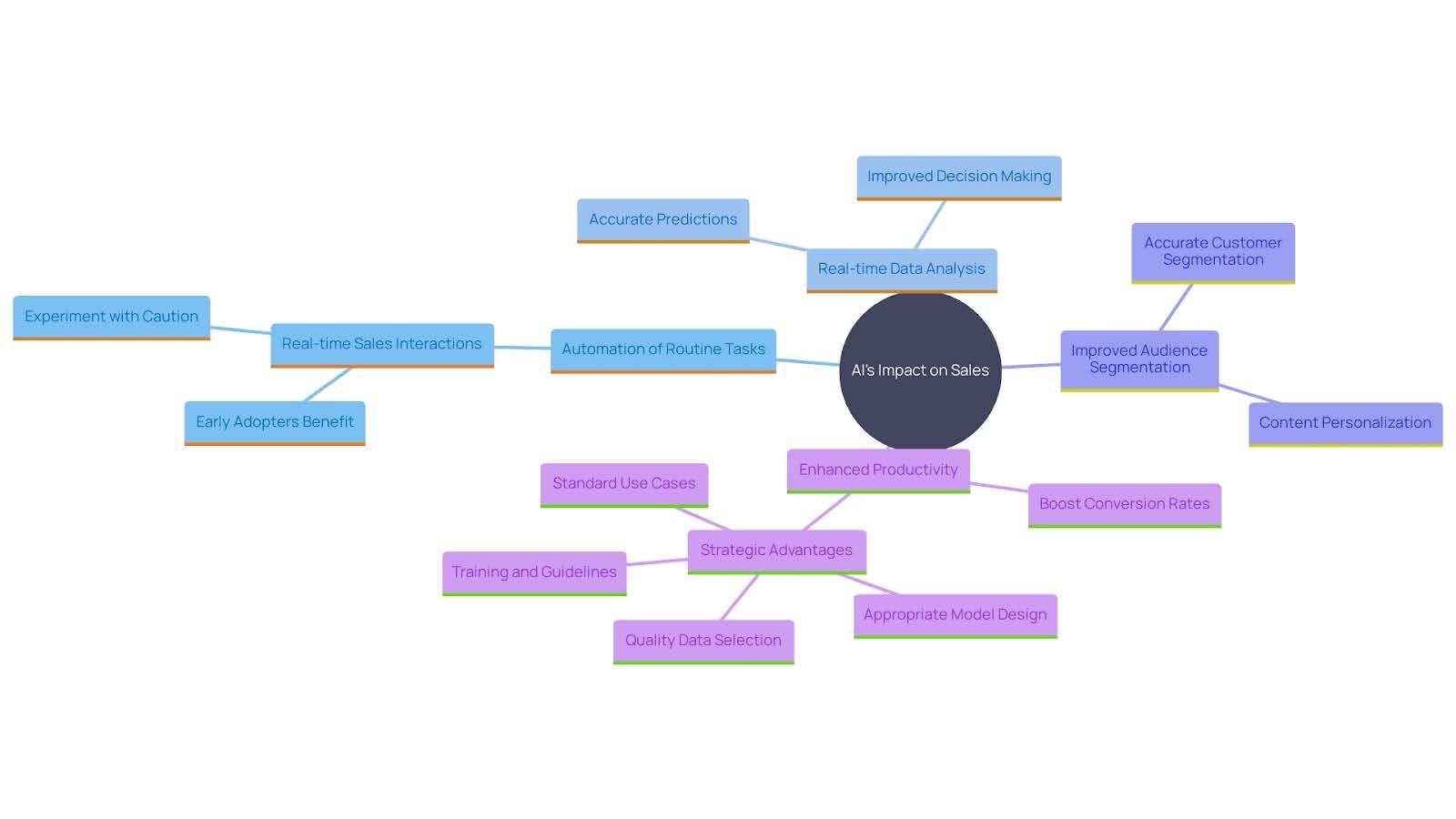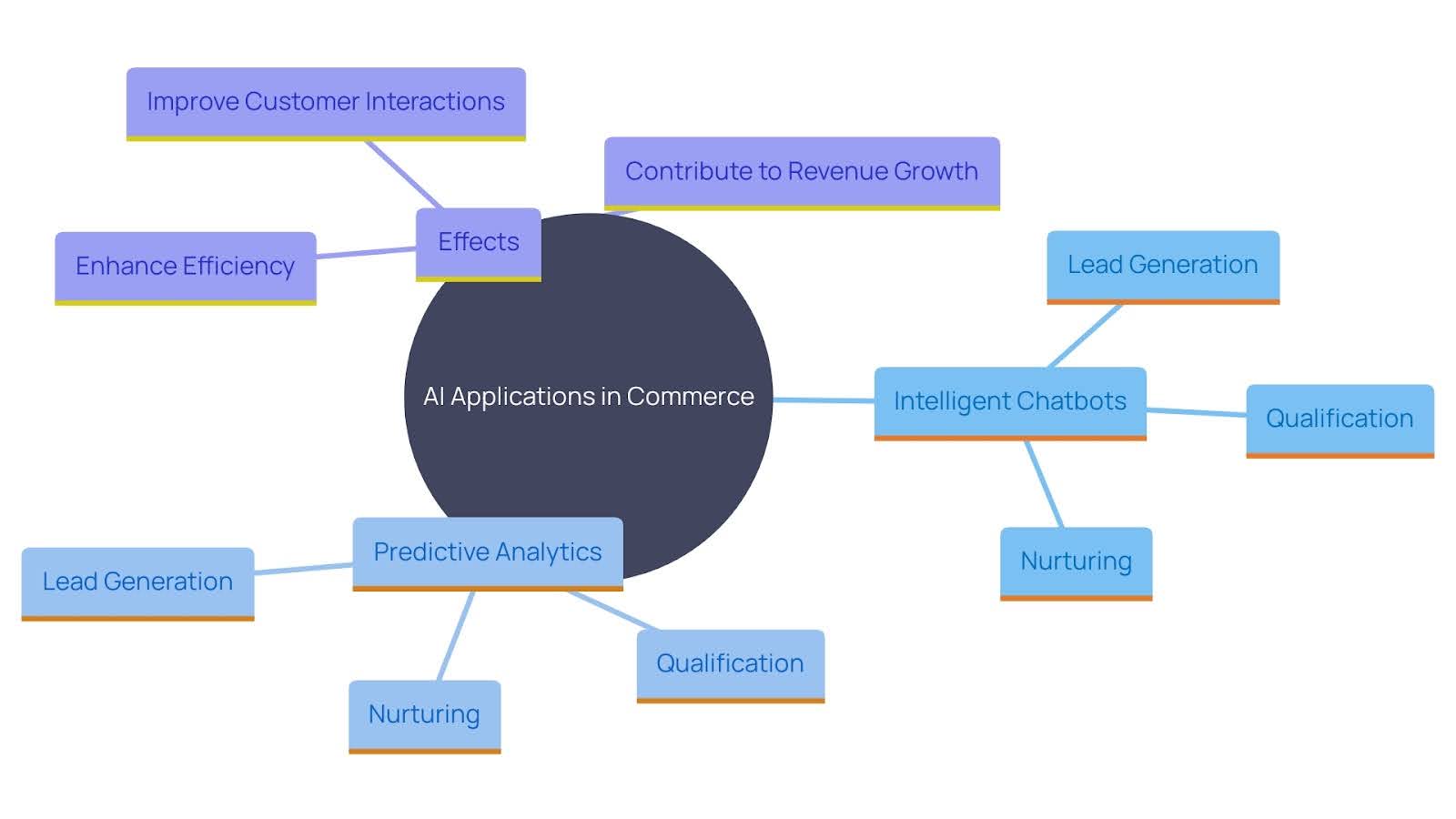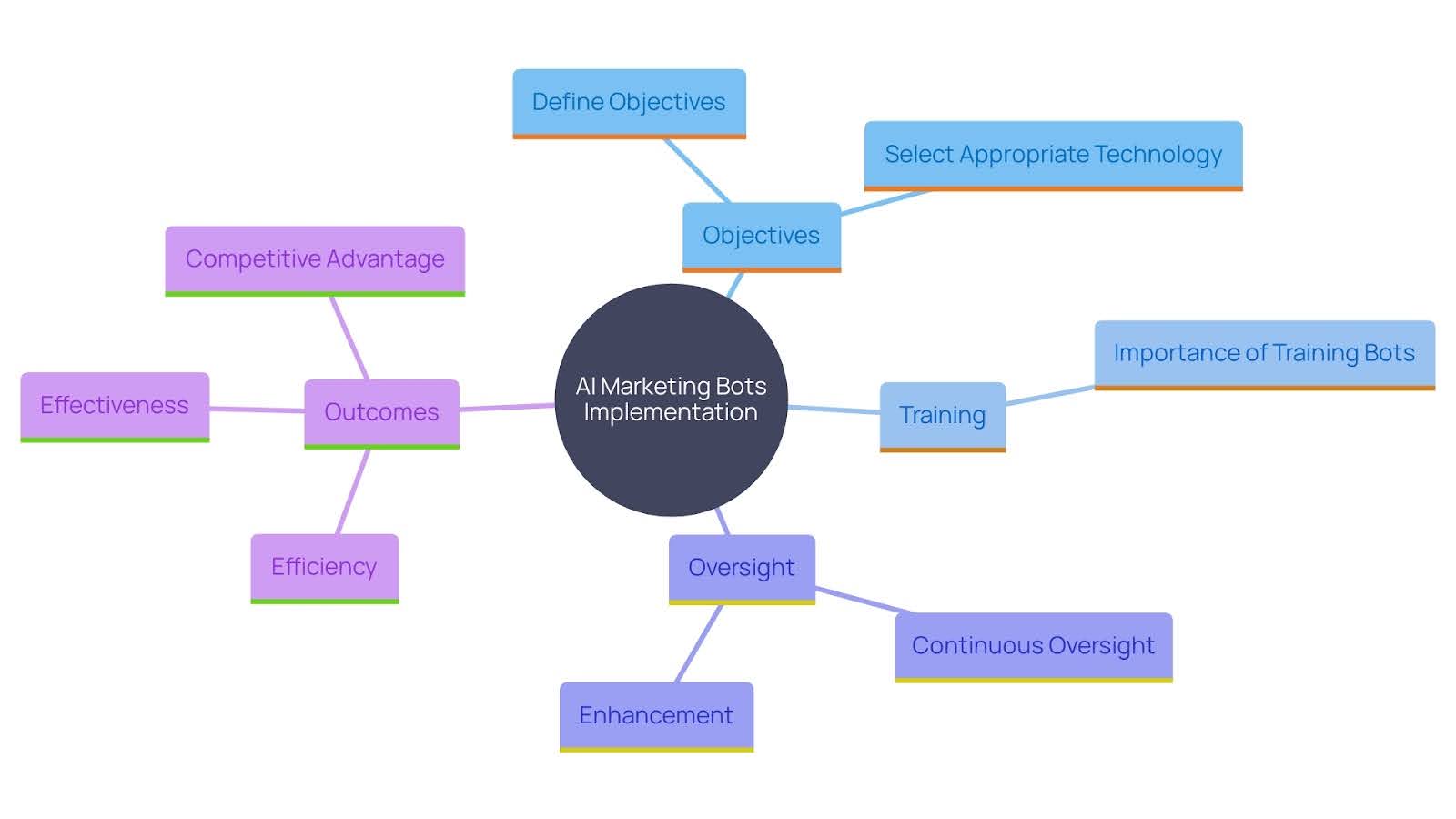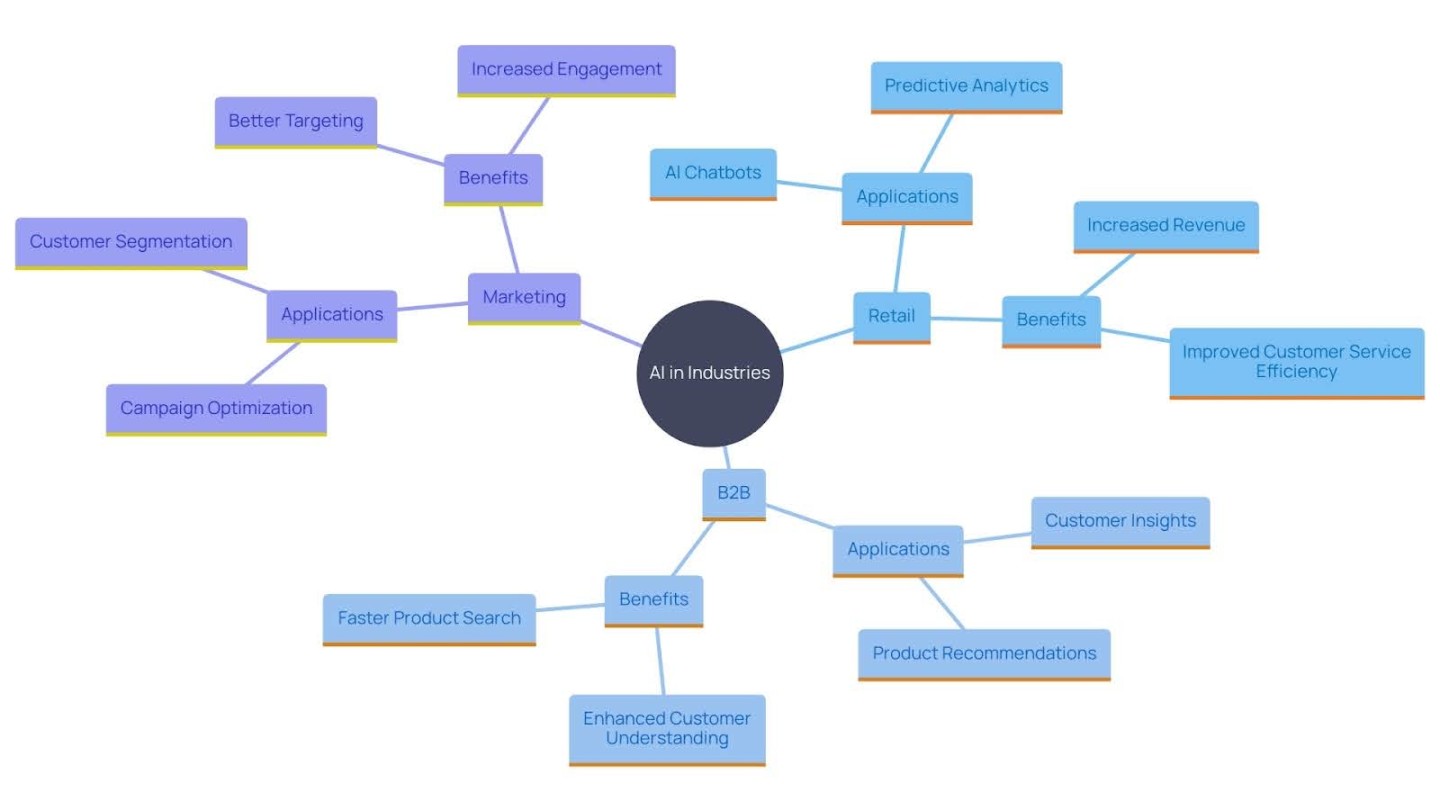Enhancing sales with AI bot technology

Artificial Intelligence (AI) is rapidly transforming the sales landscape, offering unprecedented opportunities to enhance efficiency and effectiveness. Sales teams are increasingly leveraging AI to automate routine tasks, allowing representatives to focus on high-value activities such as building customer relationships and closing deals.
The ability of AI to analyze vast amounts of data in real time provides valuable insights into customer behavior and preferences, enabling more personalized interactions and targeted strategies.
Dashly, an AI-based marketing platform, exemplifies this transformation by automating processes like meeting scheduling, lead-to-account matching, and routing, significantly improving metrics and converting website visitors into leads. With Dashly’s automation, sales teams can eliminate tedious manual tasks and focus on strategic efforts that drive results.
The integration of AI tools, such as predictive analytics and intelligent chatbots, is revolutionizing lead generation, qualification, and nurturing processes. These advanced technologies not only streamline operations but also improve customer engagement by providing real-time support and tailored solutions. Dashly’s lead scoring and automated qualification quiz efficiently categorize leads, ensuring high-value prospects are routed directly to sales, while low-quality leads are sent through self-serve funnels. This approach saves time and enhances lead quality.
As a result, sales teams can prioritize high-potential leads and optimize their time and resources, significantly boosting productivity and conversion rates. Furthermore, the strategic implementation of AI sales bots can lead to substantial improvements in sales performance. By clearly defining objectives, selecting the right technology, and continuously optimizing performance, organizations can harness the full potential of AI to drive sales efficiency and effectiveness.
For instance, Dashly reports a 50-60% open rate for automated follow-up emails, far exceeding the industry average of 20-30%, demonstrating the effectiveness of personalized, AI-driven communication strategies.
Real-world case studies across various industries demonstrate the transformative impact of AI, from personalized shopping experiences in retail to predictive analytics in B2B sales. Dashly’s case studies showcase how automation and AI-driven insights lead to impressive results, such as automating 90% of appointment booking and achieving a 93% attendance rate for scheduled meetings.
Benefits of AI in sales
AI technology is transforming sales teams by greatly improving productivity and performance. By automating routine tasks, AI enables representatives to focus on high-value activities such as nurturing relationships and closing deals. Dashly’s automation of lead qualification and meeting scheduling, for example, helps sales managers concentrate on engaging with the most valuable prospects.
Prominent sales groups have acknowledged AI as a crucial element of their success plans, utilizing it to obtain a competitive advantage. One of the most compelling advantages of AI is its ability to analyze vast amounts of data in real time. This capability offers valuable insights into customer behavior, preferences, and pain points, enabling sales professionals to customize their approaches and engage in more personalized and targeted interactions. Dashly’s precise forecasting capabilities, which have an accuracy rate of over 98%, empower businesses to make data-driven decisions and anticipate revenue outcomes confidently.
According to a recent report, 29% of marketers now consider AI-powered forecasting crucial, up from 13% in 2023, highlighting the growing importance of AI in predictive analytics. Moreover, AI-driven tools like the Opportunity Index enable business teams to micro-target the most promising opportunities. This data-driven approach allows companies to strategically boost growth and revenue by focusing on accounts with the highest engagement potential. With Dashly’s automated lead nurturing campaigns, the conversion rate from email open to meeting scheduled reaches 55%, showcasing how AI enhances engagement and conversion.
The advantages of AI in commerce are highlighted by the fact that 71% of personnel achieve their targets consistently, a 19 percentage point rise from 2022, with AI instruments being a major factor in this achievement. Dashly’s ability to automate meeting scheduling via Calendly integration ensures a seamless experience, freeing up time for salespeople and improving efficiency.
AI also enables improved audience segmentation and content personalization, which are essential for enhancing conversion rates. Choosing quality information and creating suitable models that represent customer diversity and intricate transaction processes are essential steps in this journey. Dashly’s lead segmentation and live chat solutions further personalize interactions and ensure high-priority leads are handled efficiently.

AI applications in sales
AI applications in sales are transforming the landscape, offering sophisticated tools for lead generation, qualification, and nurturing. Intelligent chatbots, for instance, engage prospects in real time, answering their queries and collecting valuable information. Dashly’s chatbots not only facilitate these interactions but also qualify leads through a seamless quiz-based approach, passing high-potential prospects to sales teams with all relevant data. This guarantees prompt and effective assistance, advancing prospects through the sales process more quickly.
Predictive analytics is another powerful AI tool, identifying potential opportunities by analyzing vast amounts of data. This technology improves the capacity of sales teams to prioritize leads according to their conversion probability, optimizing the distribution of time and resources. Dashly leverages AI for predictive lead scoring, helping teams focus on the leads most likely to convert and increasing efficiency.
The incorporation of AI in commercial processes not only enhances efficiency but also allows for more tailored and focused interactions with potential clients. Salesforce’s recent introduction of advanced AI models like xGen-Sales and xLAM highlights the ongoing investment in AI to automate and enhance business processes. Similarly, Dashly’s automated lead nurturing campaigns deliver personalized follow-ups, ensuring timely engagement and minimizing the risk of no-shows.
The effect of AI on revenue is clear in the substantial enhancement in performance, with 71% of representatives achieving their targets in 2023, a remarkable rise from the prior year. AI-driven lead evaluation, for instance, assists in recognizing the most promising candidates, conserving time and effort for marketing teams. Dashly’s lead categorization system filters out low-quality leads early, directing them to self-serve funnels and improving overall sales pipeline quality.

Best practices for implementing AI sales bots
To successfully implement AI sales bots, organizations should start by clearly defining their objectives and desired outcomes. Dashly emphasizes the importance of aligning automation tools with business goals, ensuring sales teams experience a smooth transition and measurable benefits. Choosing the appropriate technology is essential, ensuring the bot enhances the transaction process rather than substituting human interaction.
As per a recent survey, 35% of professionals in the field report that AI automation saves them an average of 2 hours and 15 minutes, allowing them to concentrate on finalizing agreements and taking notes.
Dashly’s platform automates 90% of the appointment booking process, exemplifying how strategic automation can free up sales resources for more impactful activities.
Training the bot with relevant data is essential for improving its performance over time, as AI-powered lead scoring can help identify the most promising prospects, saving time and effort for sales teams.
Early adopters integrating AI tools benefit from these early learnings and likely progress ahead of their competitors. For companies new to AI, it is advisable to start with areas that have high potential returns and lower stakes. Dashly’s case studies demonstrate that businesses have seen a substantial impact on their metrics, such as a 93% attendance rate for scheduled meetings, after implementing AI-driven strategies. Continuous oversight and enhancement are crucial to adjust the bot to changing business and client needs. AI’s ability to predict customer behavior and analyze large datasets for improved attribution accuracy highlights its value in maintaining financial stability and enhancing customer satisfaction.

Case studies and industry applications
Industries across the spectrum have harnessed AI bots to revolutionize their marketing strategies. Retailers, for example, have integrated AI chatbots to deliver personalized shopping experiences. GoBots, an AI tool, has enabled both small e-commerce enterprises and large companies by automating 42% of customer service tasks, resulting in a 40% rise in revenue. In the same way, B2B companies are utilizing predictive analytics to identify and connect with high-value prospects, optimizing their revenue processes.
According to a recent Ascend2 report, AI-powered forecasting is becoming a critical feature in marketing attribution platforms, with 29% of marketers now considering it essential. This trend underscores the substantial benefits and untapped opportunities of adopting AI in sales processes.

Conclusion
AI is revolutionizing the sales landscape by enhancing both efficiency and effectiveness. By automating routine tasks, sales teams can dedicate more time to building relationships and closing deals. Dashly’s automation platform exemplifies this transformation, offering tools that streamline meeting scheduling and lead nurturing, ensuring high-quality engagement. The ability of AI to analyze large datasets in real time offers valuable insights into customer behavior, enabling tailored interactions that improve engagement and conversion rates.
AI applications in sales, including intelligent chatbots and predictive analytics, streamline operations and enhance customer experiences. These technologies allow sales teams to prioritize leads based on conversion potential, contributing to improved performance metrics and overall sales success. Dashly’s results-driven approach showcases how the strategic use of AI can lead to tangible improvements in revenue and efficiency.
To fully leverage AI sales bots, organizations should define clear objectives, choose the right technologies, and commit to continuous optimization. This ensures that AI complements human efforts, making sales processes more effective. Dashly’s case studies highlight how the right AI tools can free up valuable resources and improve conversion rates.
Success stories from various industries illustrate the significant revenue growth and operational efficiencies achieved through AI integration.
In summary, adopting AI in sales strategies is crucial for businesses aiming to stay competitive in a rapidly changing market. Embracing these technologies not only boosts productivity and customer engagement but also positions organizations for sustained growth and success in the future.
Ready to elevate your sales strategy with AI?
Read also: Ultimate guide to an AI sales funnel: the best tips, tools and common mistakes to avoid






![13 growth hacking examples tested by Dashly experts [+46 free templates]](https://www.dashly.io/blog/wp-content/uploads/2023/05/Growth-hacking-examples-to-inspire-your-team-720x317.png)

